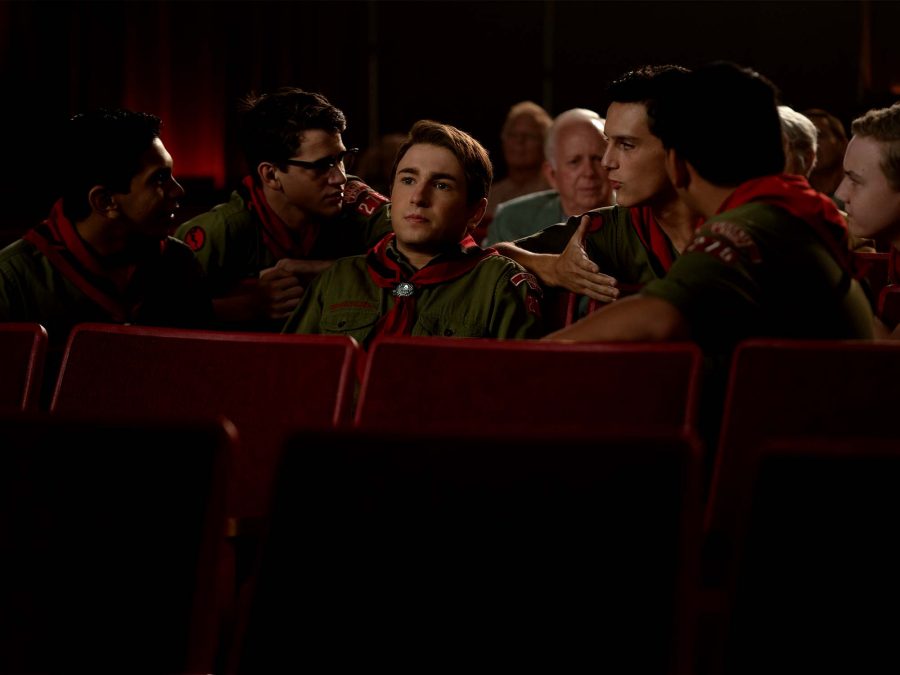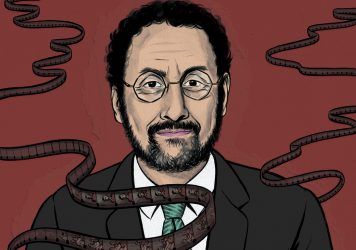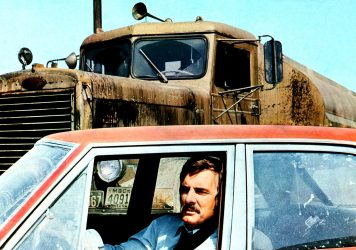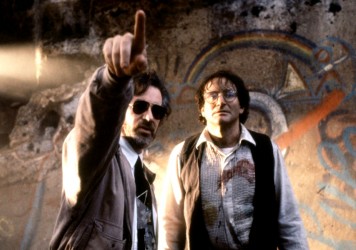Steven Spielberg weaves a tale about his childhood love of cinema and the relationship between his parents in this light but lovely mostly true story.
The pandemic seems to have been a period of introspection for some of our most revered filmmakers with the cine-memoir becoming a recurring theme. James Gray chose to make a film about his experience growing up in New York City during the turbulent 1970s in Armageddon Time, while Richard Linklater’s Houston childhood inspired his Rotoscope feature Apollo 10½. Now it’s the turn of Steven Spielberg, who charts his coming-of-age in Arizona and the dissolution of his parents’ marriage as counterpoint to his blossoming relationship with cinema. For a director whose entire career has engaged with the concept of storytelling and mythmaking, it’s fitting he would finally tackle his own life with this same playful perspicuity.
When we meet Sammy Fabelman, he’s queuing for his first ever trip to the cinema with his mother Mitzi (Michelle Williams) and father Burt (Paul Dano). Sammy is apprehensive about The Greatest Show on Earth, but his parents reassure him he’s about to have the most wonderful time. This might be the understatement of the century as Sammy is forever transformed by the experience, and when he returns home, all he wants to do is recreate what he saw on the screen. His dreamy, ditzy mother fully supports this, while his absent-minded but sharp father allows Sammy to make use of his camera.
It’s Burt’s spiffy job with IBM which takes the Fabelmans to California, where Sammy struggles to fit in and is subject to antisemitic bullying. In these high school scenes we feel the undoubted political influence of Tony Kushner, who wrote the script with Spielberg following their collaboration on West Side Story in 2021. It does feel reminiscent of that film, or the likes of American Graffiti – it feels important to note that one of Sammy’s bullies is literally a jock called Chad. But Kushner and Spielberg capture it all with such wry earnestness, it’s never jarring.

When Sammy starts to date religious classmate Monica (Chloe East) the humour of their romantic tête-à-têtes is a highlight. So too are the scenes of Sammy and his friends creating their own movies – homemade war epics and westerns. Does Spielberg perhaps present himself as a preternaturally talented teen who was destined to go onto become the man he did? A little, but knowing the kid hyperfocused on home-made special effects and cutting together the perfect end of year class video would grow up to be one of the greatest filmmakers of all time, it’s difficult to argue too much with this nostalgic view of the past.
Meanwhile, bored by her suburban life and an absent husband, the flighty Mitzi gifts Sammy his creativity, but is presented as an intermittent presence in his life – one that perhaps Spielberg even now doesn’t fully understand. Williams is on fine form, though a little one-note, while Dano receives a chance to play a more sympathetic character than his usual typecasting. The Fabelmans clearly comes from a place of deep sincerity – while it might not be a particularly “deep” film, it is absolutely the Spielberg film about Becoming Spielberg that we’ve been waiting for, echoing the world of child-like wonder and the tenacity to manifest dreams that his whole career has centred around.
Little White Lies is committed to championing great movies and the talented people who make them.
Published 25 Jan 2023
Spielberg on Spielberg! Finally!
Movie magic meets a portrait of familial disintegration.
A sweet but never cloying jaunt down Mr Spielberg’s memory lane.

The sage of modern American theatre on his transition to becoming Steven Spielberg’s trusty screenwriting wingman.

This made-for-TV feature has all the trademarks that would go on to define one of America’s most acclaimed filmmakers.

By James Clarke
Does the director’s take on JM Barrie’s classic tale of arrested development deserve its reputation?